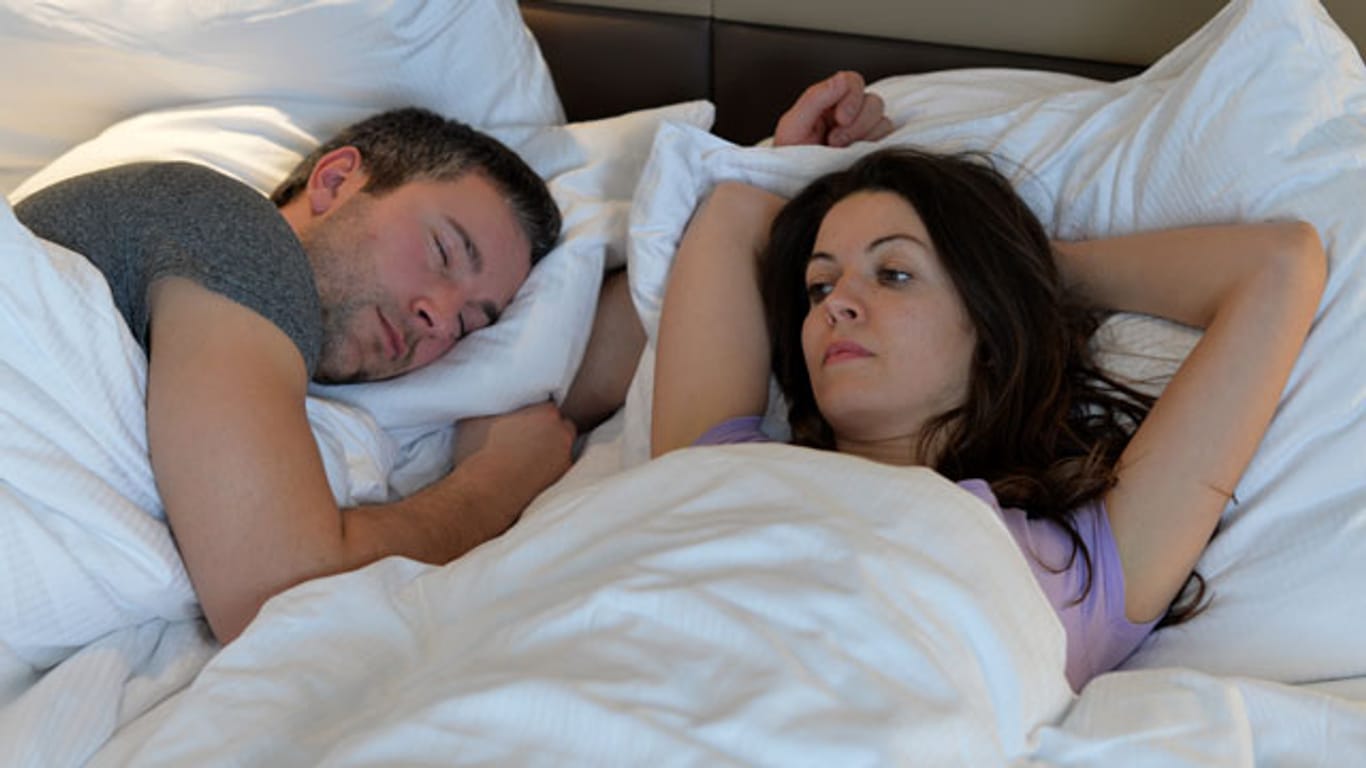Valerian tablets are said to naturally help with sleep disorders. When taking it, you should definitely pay attention to side effects and interactions.
Valerian (Valeriana officinalis) is an ancient medicinal plant found in both Europe and Asia. An extract can be obtained from the root of the plant that is said to have a relaxing and anti-spasmodic effect. Valerian has therefore long been considered a remedy for restlessness and nervous-related problems falling asleep in natural medicine.
The advantage of herbal sleeping pills and sedatives such as valerian is that, unlike prescription medications, they are not addictive. However, there are a few things to consider when taking valerian in concentrated form.
When valerian tablets can help
Valerian can be taken in the form of teas, tablets or drops. Valerian tablets contain the dried extract of valerian root and are therefore more concentrated than teas or tinctures. Depending on the brand, each tablet contains 450 to 800 milligrams of valerian extract.
Whether valerian can actually help with sleep problems and nervousness is controversial. There are many studies on the effects of Baldrain, but these were usually only carried out with a few test subjects and are therefore not very meaningful. Nevertheless, the umbrella organization of European specialist societies for phytotherapy (ESCOP) and the scientific commission of the Federal Institute for Drugs and Medical Devices (BfArM) confirm the effect of valerian against restlessness and nervous problems falling asleep.
However, it has not been proven whether valerian also helps against heart and gastrointestinal problems.
How to take valerian tablets
The tablets are swallowed whole with plenty of liquid. However, when you should take the tablets differs depending on the reason for taking them.
If you suffer from restlessness during the day, you can take one tablet up to three times a day. Please note, however, that valerian can affect your concentration and ability to react. After taking valerian tablets, you should not drive , operate machines or work without a secure footing.
If you want to take valerian to help you fall asleep better, you should take one tablet half an hour before going to bed. However, in order for valerian to have a noticeable effect, the drug must be taken over a period of two to four weeks, according to the Committee for Herbal Medicinal Products of the European Medicines Agency.
There is generally no limit to how long you can take valerian tablets. However, be sure to follow the instructions on how to take the tablets correctly on the package insert. If these are tablets with a higher concentration, the number of tablets required may differ.
Overdose of valerian tablets
If you accidentally swallowed a larger amount than prescribed, you usually don’t need to worry about any serious consequences. However, according to the European Medicines Agency, too high a dose (around 20 grams per day) can lead to daytime tiredness, stomach cramps, chest tightness, dizziness and shaking hands. However, these symptoms disappear after about 24 hours.
However, if you experience an extreme overdose and feel unwell, you should contact your doctor.
Side effects and interactions of valerian tablets
Just because it’s an herbal product doesn’t mean it can’t have side effects. It is known that, in rare cases, valerian can cause nausea and abdominal cramps. In principle, valerian tablets should never be taken with alcohol.
Interactions with other medications are also possible. The Health Knowledge Foundation therefore recommends that you seek detailed advice from either your family doctor or the pharmacy before taking it.
When not to take valerian tablets
Due to a lack of scientific results, pregnant and breastfeeding women are usually not advised to take valerian. If you still try valerian tablets during pregnancy or breastfeeding, you should definitely seek medical advice beforehand.
It is also taboo if you have already had an allergic reaction to the medicinal plant valerian and one of the other components of the tablets. The tablets can also contain various types of sugar. If you have lactose or galactose intolerance, please consult your doctor or pharmacist before taking the valerian preparation.
Tips for a healthy sleep
According to experts, to promote healthy sleep even without sleeping pills, you should heed the following tips:
- Pay attention to fixed rituals in the evening to mentally prepare yourself for going to bed.
- Ventilate shortly before going to sleep. This ensures fresh air and a cool temperature (18 degrees is optimal).
- Darken the bedroom well.
- Avoid watching television and cell phones in the bedroom.
- Avoid stimulating drinks such as coffee or cola and heavy meals before going to bed.
- Avoid taking a long nap.
- Exercising just before going to bed can also make it difficult to fall asleep.
- If you wake up in the night, get up rather than lie awake for hours.
- A short walk in the evening can be relaxing.

